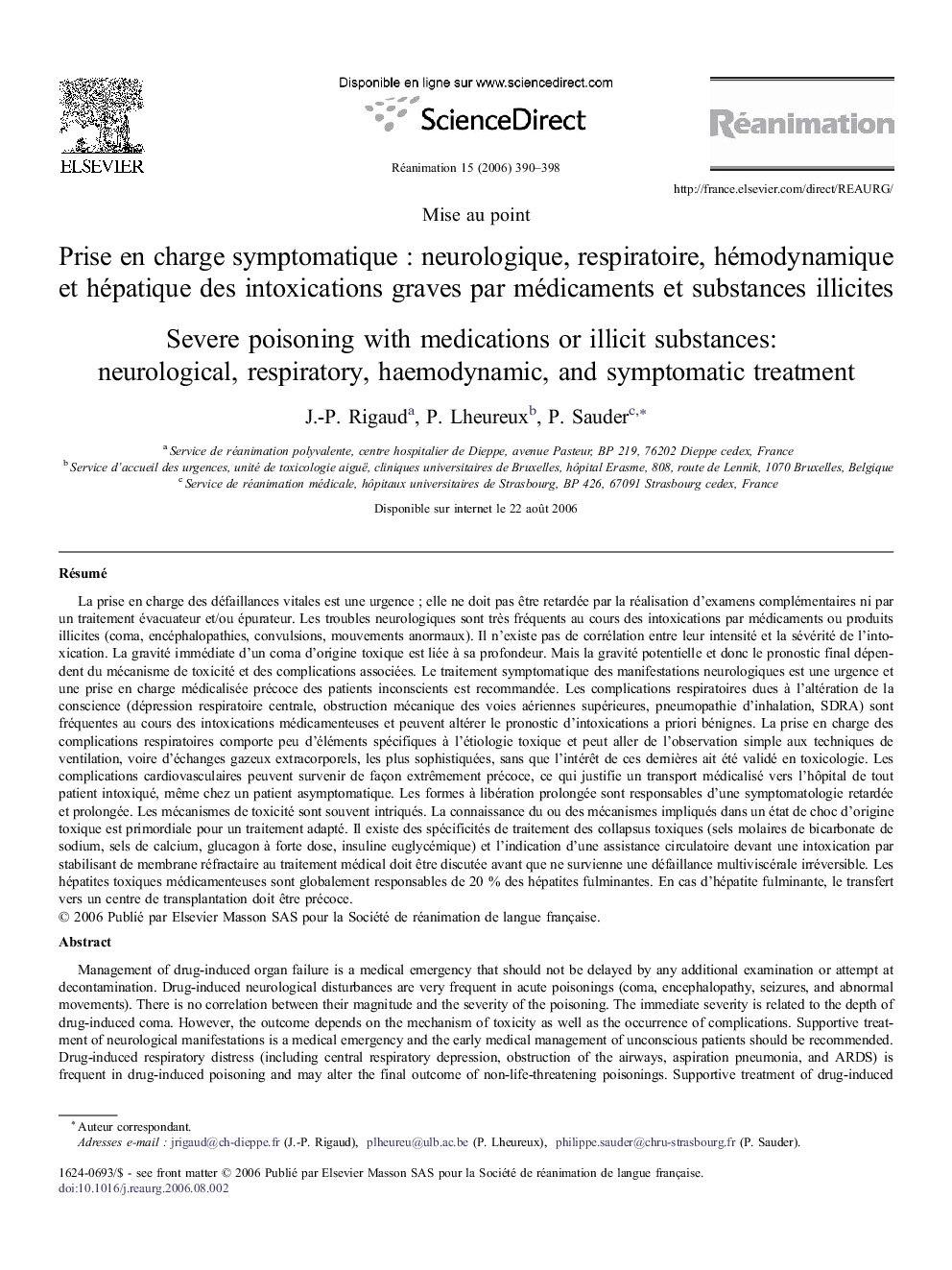| کد مقاله | کد نشریه | سال انتشار | مقاله انگلیسی | نسخه تمام متن |
|---|---|---|---|---|
| 2613123 | 1134825 | 2006 | 9 صفحه PDF | دانلود رایگان |
عنوان انگلیسی مقاله ISI
Prise en charge symptomatique : neurologique, respiratoire, hémodynamique et hépatique des intoxications graves par médicaments et substances illicites
دانلود مقاله + سفارش ترجمه
دانلود مقاله ISI انگلیسی
رایگان برای ایرانیان
موضوعات مرتبط
علوم پزشکی و سلامت
پزشکی و دندانپزشکی
طب اورژانس
پیش نمایش صفحه اول مقاله

چکیده انگلیسی
Management of drug-induced organ failure is a medical emergency that should not be delayed by any additional examination or attempt at decontamination. Drug-induced neurological disturbances are very frequent in acute poisonings (coma, encephalopathy, seizures, and abnormal movements). There is no correlation between their magnitude and the severity of the poisoning. The immediate severity is related to the depth of drug-induced coma. However, the outcome depends on the mechanism of toxicity as well as the occurrence of complications. Supportive treatment of neurological manifestations is a medical emergency and the early medical management of unconscious patients should be recommended. Drug-induced respiratory distress (including central respiratory depression, obstruction of the airways, aspiration pneumonia, and ARDS) is frequent in drug-induced poisoning and may alter the final outcome of non-life-threatening poisonings. Supportive treatment of drug-induced respiratory distress is rather non-specific including medical observation, mechanical ventilation, and even sophisticated methods like extracorporeal removal of CO2 whose efficiency in drug-induced poisoning remains to be determined. Drug-induced cardiovascular disturbances may occur early and abruptly. Thus, the transfer of all patients poisoned with cardiotropic drugs requires medical supervision, even in asymptomatic patients. Sustained release drugs may cause a delay in onset of sustained toxic effects. The mechanisms of toxicity are frequently associated. The precise knowledge of the different mechanisms involved in a drug-induced cardiovascular shock is mandatory for providing adequate supportive treatment. There is some specificity regarding the treatment of drug-induced cardiovascular shock including the administration of molar sodium bicarbonate, calcium salts, high-dose of glucagon, and insulin. The indication of extracorporeal life-support should be considered in case of poisonings involving membrane-stabilizing agent, refractory to conventional treatment, before the onset of irreversible multiorgan failure. Drug-induced hepatitis globally accounts for 20% of fulminant hepatitis. Fulminant hepatitis requires considering the early transfer in center specialized in liver transplantation.
ناشر
Database: Elsevier - ScienceDirect (ساینس دایرکت)
Journal: Réanimation - Volume 15, Issue 5, October 2006, Pages 390-398
Journal: Réanimation - Volume 15, Issue 5, October 2006, Pages 390-398
نویسندگان
J.-P. Rigaud, P. Lheureux, P. Sauder,